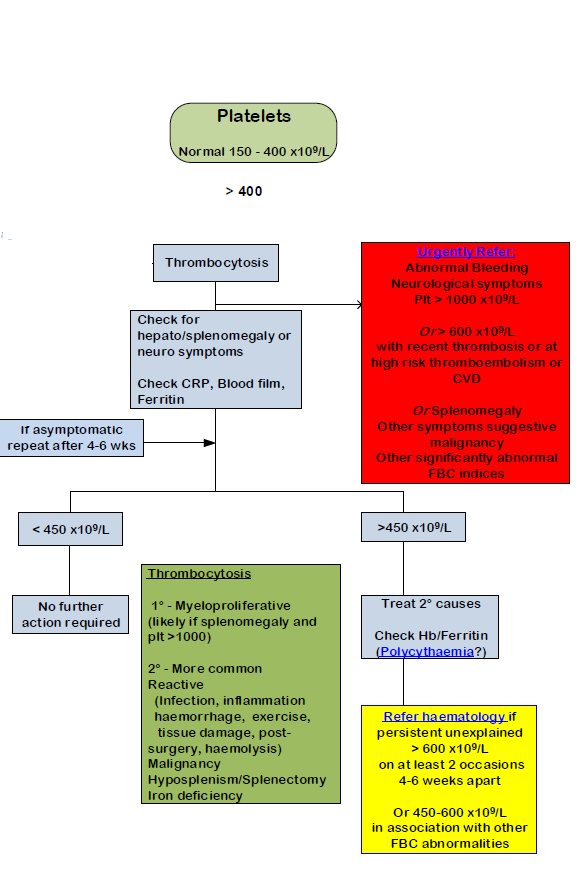Thrombocytosis
Thrombocytosis occurs when the platelet count exceeds 450 x 10^9/l although numbers may exceed 1,000 x 10^9/l without symptoms.
Thrombosis and paradoxically, haemorrhage are the main symptoms but their occurrence is as much dependent on qualitative defects in the platelets as much as their number.
Two types of thrombocytosis are recognised:
- reactive thrombocytosis - for which the term thrombocytosis is properly reserved
- thrombocythaemia - an autonomous or essential thrombocytosis
A suggested management pathway in adults:

Notes:
- in routine clinical practice, reactive thrombocytosis may be responsible for more than 85% of cases with an increased platelet count
- causes of reactive thrombocythaemia (including inflammation, infection, haemorrhage and iron deficiency) must be excluded before a diagnosis of essential thrombocythaemia (ET)
- any degree of persistent thrombocytosis, whether or not it fulfils the conventional criterion of being above 600×109/l, must be pursued for the possible diagnosis of ET
- cases of unexplained thrombocytosis in adults may be due to cancer - consider further investigations such as a CXR, and OGD and faecal immunochemical test (FIT)
Reference:
- Skoda RC. Thrombocytosis. Hematology Am Soc Hematol Educ Program. 2009:159-67
Related pages
- Thrombocytosis (essential)
- Thrombocytosis (reactive)
- Thrombocythaemia in pregnancy
- Raised platelet count (thrombocytosis) - NICE urgent cancer referral guidance
- Thrombocytosis (raised platelet count) and subsequent cancer risk
- Thrombocytopaenia
- Abnormal full blood count
- Faecal immunochemical tests (FIT) for hemoglobin and detection of bowel cancer
Create an account to add page annotations
Add information to this page that would be handy to have on hand during a consultation, such as a web address or phone number. This information will always be displayed when you visit this page